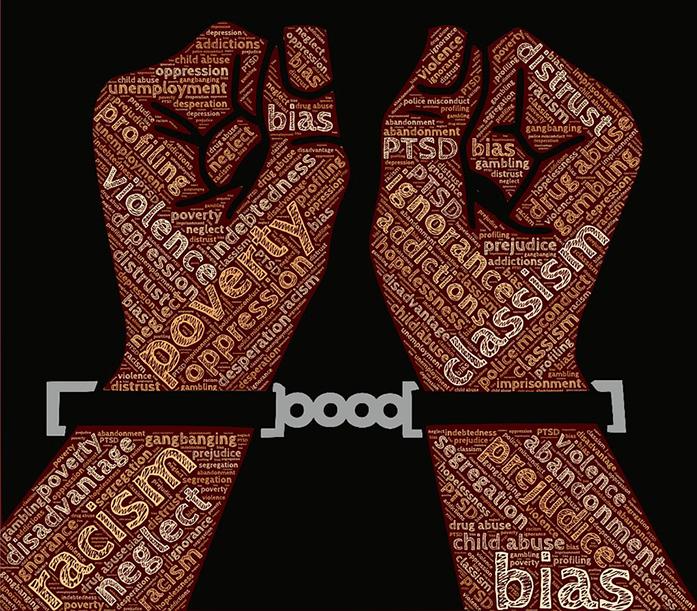A.J.K O’Donnell
The tension surrounding the two men was almost palpable. It seemed that one could almost reach out and crack the thick air between the couple as they spoke. The predicament these individuals have found themselves in is one many may have experienced.
Even the most mild of interactions can bring to the surface centuries of institutionalized discrimination because of something as simple as an innocent question, such as why black people can be prejudiced but not racist. When it comes to discussing institutional “isms” (such as racism, sexism, faithism), it is always essential to acknowledge the vast difference between institutional and circumstantial oppression/social characteristics.
Image that “institutional” social ills were represented by two carts of fruit. On one side of the market, there is a bursting overflow of juicy, June-harvested watermelons. In the other cart, there are average, softening red apples. In this produce aisle of social constructs, three people are allowed to have watermelons, and 10 individuals were handed the bruised apples. If it is understood that those who are given watermelons have the upper-hand and those with apples have a lower-hand, then any given “ism” would appear in a fairly clear manner. A person with only an apple, because of the system that has deemed them as “apple recipients,” cannot be told they have a watermelon — clearly, that would not make sense. On the other hand, a person with an apple could not tell the people with a watermelon that they have apples — for that would not make sense. As with the possession of fruits in this meta-market, the “upper-hand,” or privilege, in relation to social constructs is not as relative as many seem to think.
In the United States, and much of the global community, there exists various structures that have manifested the perpetuation of oppressive mindsets and behaviors, for example, racism. To the contrary of many individual’s beliefs, it is impossible for a person of color to be racist. This is purely based upon analyzing the institution of racism, which would be the secular practices in place and have been for hundreds of years.
The entity that is racism in the United States is the systematic acceptance that white skin is dominant over all others. Therefore, it is problematic to state that anyone who is not white can be racist toward a white person, specifically because of the position of power white people have in the racism structure. However, while a non-white person cannot be racist, they can enact prejudicial actions and discriminate against another person because of their skin color.
Prejudice and discrimination, while problematic, are not “upper-hand” institutionalized practices. They are merely circumstantial, personal decisions, while institutional practices are overarching and evident whether a person allows them to be or not.
As with racism, it is impossible for a woman to be sexist or an individual with a disabling struggle to be “ableist.” Both women and the person who experiences a disabling struggle do not have the “upper-hand” when analyzing their places on the institutional level. However, just as with racism, it is possible for a person to be discriminatory or prejudiced toward another person upon the basis of femininity or disability, but never can people who are outside an institutional system use it to their own benefit.
Understanding the differences between institutionalized problems and circumstantial, individual beliefs is imperative for the barriers of these institutions to finally be torn down. Instead of focusing on trying to mandate someone with an “apple” or who is “not benefited by the institution” to be a member of the “institution” itself, acknowledge your own privileges and work to build a more inclusive and productive society. After all, fruit salad is always tastier when shared and mixed with numerous fruits.









